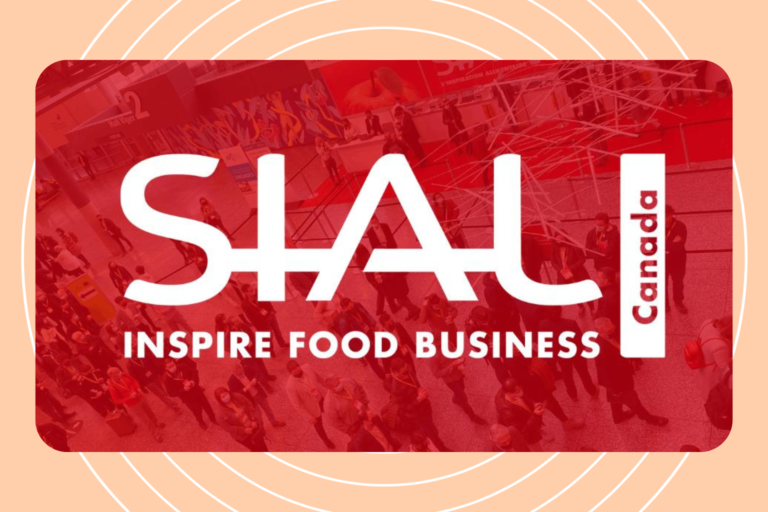Canada's Agriculture is Sustaining the Economy and Beyond
 Canada, a country renowned for its scenic landscapes, multicultural cities, and warm people, is underpinned by a crucial industry often overlooked – agriculture. This sector, integral to the Canadian economy, food system, and societal makeup, is more than a mere occupation. It’s a pivotal pillar supporting the nation’s economic and socio-cultural fabric.
Canada, a country renowned for its scenic landscapes, multicultural cities, and warm people, is underpinned by a crucial industry often overlooked – agriculture. This sector, integral to the Canadian economy, food system, and societal makeup, is more than a mere occupation. It’s a pivotal pillar supporting the nation’s economic and socio-cultural fabric.
A Pillar of Strength
Agriculture contributes significantly to Canada’s economy. As of 2020, the agricultural and agri-food industry represented more than 6.7% of Canada’s total GDP. It employed over 2.3 million individuals, equating to approximately one in every eight jobs. This sector extends beyond crop cultivation and livestock rearing, encompassing a dynamic array of sub-sectors like food processing, retail, and other agri-businesses.
Furthermore, agriculture is one of Canada’s leading export sectors. Agricultural exports hit a record \$67 billion in 2020, positioning Canada as the fifth-largest global exporter of agricultural and agri-food products. The primary agricultural exports include canola, wheat, soybeans, alongside beef and pork. These exports don’t just elevate the national economy; they also help satisfy the global demand for food, enhancing Canada’s international reputation and bolstering trade relationships.
Custodians of the Land
Canadian farmers aren’t solely food producers; they’re also land custodians. With over 160 million acres of farmland, they play a pivotal role in managing and safeguarding these lands. Sustainable farming practices, such as crop rotation, minimal tillage, and precision agriculture, are employed to maintain soil health, boost biodiversity, and reduce farming’s environmental impact. As climate change increasingly impacts the world, the role of farmers as environmental stewards grows ever more critical.
In fact, the Canadian agricultural sector is leading the charge towards a more sustainable future. Progressive policies and innovative technologies are being adopted to reduce greenhouse gas emissions, conserve water, and preserve the country’s diverse ecosystems. As the world struggles to reconcile the demands of food production with the urgent need for environmental sustainability, Canadian agriculture is setting a global example.
 Feeding the Nation and Beyond
Feeding the Nation and Beyond
Canada is among the select few nations producing more food than they consume, thanks to its fertile lands and favourable climate. This surplus ensures that Canadians enjoy high levels of food security, with access to a varied array of nutritious and affordable foods throughout the year. The value of domestic food production became glaringly apparent during global crises, such as the COVID-19 pandemic, where it provided a safety net against disruptions in the global supply chain.
Not only does Canadian agriculture ensure domestic food security, but it also contributes significantly to feeding the world. With global populations set to reach 9.7 billion by 2050, the demand for food will dramatically increase. Canadian agriculture will undoubtedly play a critical role in meeting this growing need, further highlighting its global importance.
Rooted in Community
Beyond economics and food production, agriculture is integral to Canadian culture and community. From Nova Scotia’s Annapolis Valley to British Columbia’s Okanagan Valley, farming is deeply embedded in the Canadian identity. Many rural communities revolve around agriculture, with farms often being family-run operations passed down through generations. These agricultural roots contribute to rural community stability and preserve the cultural heritage of Canadian farming.
Rising to Global Challenges
As we move forward, agriculture’s importance in Canada is set to rise. With growing global populations, escalating food demand, and the urgent need to address climate change, sustainable and efficient agricultural practices will be at the forefront of meeting these challenges. Canadian agriculture, therefore, is not merely a domestic affair, but an international imperative.
Research and innovation in farming technology, such as precision agriculture, vertical farming, and automation, are expected to drive the industry towards higher efficiency and sustainability. These technological advancements, coupled with Canada’s natural resources and established agricultural infrastructure, present exciting opportunities for growth and global impact.
 However, the future isn’t without challenges. Climate change is posing unprecedented threats to farming, with changes in weather patterns potentially disrupting crop cycles and livestock health. This underscores the need for continued innovation and adaptation within the sector.
However, the future isn’t without challenges. Climate change is posing unprecedented threats to farming, with changes in weather patterns potentially disrupting crop cycles and livestock health. This underscores the need for continued innovation and adaptation within the sector.
Moreover, it’s crucial to attract new generations to farming to ensure its continuity. The average age of Canadian farmers is over 55, and the industry needs to be seen as an attractive career choice for young people. This means not only showcasing the economic opportunities within the sector but also its roles in environmental stewardship, food security, and social contribution.
The Bedrock of a Nation
The importance of agriculture in Canada extends far beyond its economic contribution. As an industry, it ensures the country’s food security, plays a critical role in environmental management, and forms a cornerstone of the socio-cultural fabric in many rural communities. As the world faces increasing food demands and environmental pressures, the role of Canadian agriculture is set to become even more pivotal.
Canadian agriculture is more than a livelihood or an industry; it’s a testament to a nation’s resilience, ingenuity, and commitment to future generations. As we move forward, supporting and investing in this sector is not just a matter of national importance, but a global responsibility. The significance of agriculture in Canada truly underlines the old adage, “As you sow, so shall you reap.” The seeds sown in Canadian farms today are indeed reaping benefits for the country and the world.
Farming as One
Agriculture associations play a crucial role in underpinning the many facets of agriculture in Canada. These organizations, ranging from local to national, serve as the backbone for the vibrant agricultural sector, fostering the resilience and strength that’s integral to its economic, environmental, and social impacts. They offer a platform for farmers and agricultural businesses to connect, share knowledge, and collectively voice their concerns and interests. This unity is essential for maintaining the robust export industry that supports Canada’s economy and contributes to global food security.
Moreover, these associations provide a wealth of support to their members, including technical advice, business resources, research findings, and training opportunities. This support is instrumental in promoting sustainable farming practices that uphold Canadian farmers’ role as custodians of the land. Additionally, they champion the cultural significance of farming, encouraging a new generation of farmers to carry forward the rich agricultural heritage deeply embedded in Canadian identity. As such, agriculture associations in Canada are vital partners in meeting future challenges and opportunities, ensuring the continued vitality and global relevance of Canadian agriculture.
Here is a list of farmers’ association and federation in Canada:
Agriculture Alliance of New Brunswick
The Agricultural Alliance of New Brunswick (AANB) is the voice of this province’s farmers. In 2006, two groups – the Agriculture Producers’ Association and the Federation des agriculteurs et agricultrices francophones du Nouveau Brunswick – merged to form the AANB – a grassroots, bilingual organization of farmers working for farmers. The Agricultural Alliance is making a significant difference in the lives of and the prosperity of New Brunswick farmers. Since its inception, the Alliance has already achieved significant progress on a number of critical issues impacting the industry.
British Columbia Agriculture Council
BCAC advocates for the interests of B.C. farm and ranch families. By working collaboratively with its members, partner industry associations and private sector agri-food businesses, it ensures the sustainable growth and competitiveness of B.C. agriculture.
Established in 1997, it is CYFF’s goal to assist young farmers with information while exchanging ideas that lead to progressive strategies to ensure farming success in Canada. Through networking with young farmers, the organization’s goal is to provide education, leadership training and capacity building for young agriculture producers of Canada.
Newfoundland & Labrador Federation of Agriculture
The Newfoundland and Labrador Federation of Agriculture (NLFA) is an organization which represents farmers and farmer groups in the province. Its motto is “Farmers Helping Farmers”, translating to its belief that by sharing information and speaking with a united voice, farmers can work more effectively for the betterment of the agriculture industry, and for the improvement of the Province as a whole.
Nova Scotia Federation of Agriculture
The Nova Scotia Federation of Agriculture has been the voice of Nova Scotia farmers since 1895. Representing the interests of over 90% of all agricultural production across the province. The NSFA supports farm families and businesses through lobby and advocacy efforts and the delivery of programs and services. The NSFA works in the best interest of its members. The NSFA monitors and reviews trends, legislations and programs that impact the industry.
Ontario Federation of Agriculture
The Ontario Federation of Agriculture (OFA) is the largest general farm organization in Ontario, proudly representing 38,000 farm family members across the province.OFA is a dynamic, producer-led organization based in Guelph, Ontario that works to represent and champion the diverse interests of Ontario’s agri-food sector and rural communities. Its work includes government relations, farm policy development, research, lobby efforts, community representation, media relations and more.
Prince Edward Island Federation of Agriculture
It is a non-profit, democratic organization of Island farmers working together for the betterment of primary producers. The organization speaks to issues that are not commodity-specific but affect all Island farmers. It is the largest general agricultural organization in P.E.I. with a membership of over 80% of all registered producers, drawn from all commodities.
Union des producteurs agricoles (Quebec)
The UPA represents some 42,000 agricultural producers in Quebec as well as all forest producers.
Its mission is to promote, defend and develop the professional, economic, social and moral interests of agricultural and forestry producers in Quebec . In addition, the UPA aims to contribute to the improvement of living conditions at the social, economic and cultural level in rural areas.
Yukon Agricultural Associations
The Yukon Agricultural Association evolved from the Yukon Livestock and Agriculture Association which was initially formed in 1972 and then formally established in 1974. Since then, the Association has represented the agriculture industry in dealings with governments and other organizations. For 45 years, YAA has provided cross-commodity support for the development of the agriculture sector in the Yukon. To foster and promote sustainable Yukon agriculture for the benefit of both private and commercial producers and consumers through education, infrastructure development, and liaison with government agencies and with non-government organizations.



